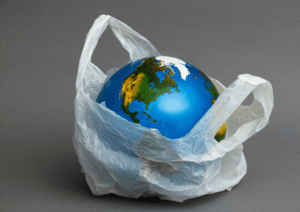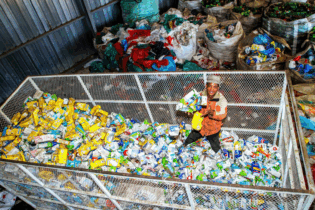Recycling is rapidly emerging as one of the key drivers of business transformation globally. For South Africa, it has huge potential to help the country find ways to build a more inclusive economy and create millions of jobs.
As we celebrated Recycling Week, it’s worth looking at the opportunities that recycling offers our country. First of all, we need to recognise the scale of the opportunity. Only 8,6% of the global economy is circular, and thus 90% remains unrecycled. On the face of it, that’s a somewhat depressing statistic. But change the angle and one can see that it’s a massive opportunity just waiting to be seized. At a macro level, building a circular economy plays an important role in reducing emissions, which in turn helps to reduce the impact of climate change. Prioritising circular businesses, the Circularity Gap Report 2022 argues that it is possible to reduce resource extraction by 28% and greenhouse gases by 39%. On the ground, we in South Africa can already see how entrepreneurs are seeing the opportunities inherent in waste – the legions of waste pickers hauling plastic, cardboard and other recyclables to municipal dumps are true exemplars of grassroots entrepreneurs who make a living for themselves while doing their bit for the environment. When it comes to developing economic opportunities, it’s vital to build critical mass by encouraging circular businesses to grow and become sustainable. Too many of South Africa’s small, medium and microenterprises (SMMEs) are survivalist enterprises vulnerable to economic headwinds; we need more of them to enter the formal economy and create permanent jobs. The National Development Plan rightly sees SMMEs as the engines of growth and job creation, but that means helping them develop into growing sustainable enterprises. At Nedbank we see the circular economy as an exciting opportunity to make a significant impact on South Africa’s socioeconomic indicators. We decided to put our money where our mouth is and launched an ambitious green-economy corporate social investment strategy late in 2021.Our aim? To create a green ecosystem of companies that together would create jobs while redefining how the economy actually works.
One of our key partners in this endeavour is Indalo Inclusive, a non-profit organisation that focuses on developing and growing enterprises that make a positive environmental and societal impact. Indalo Inclusive offers companies targeted assistance depending on where they are in their life cycle, from taking an initial concept into a business model and ultimately replicating a successful business model that will attract investment. We are already seeing this partnership bear fruit. One example is Boomba.mobi, which began as an answer to illegal dumping in the Diepsloot township. Its name alludes to the ‘boomba’, or dung beetle, which reuses waste. Beginning with collecting garden waste and rubble and guaranteeing its responsible disposal, Boomba.mobi is now tackling the problem of food waste by exchanging it for used clothes. Food waste is then turned into compost. So far, the company has created 150 jobs, with more to come. It’s often observed that technology has the power to unlock innovation in all sorts of unexpected ways. Consider Durban-based Anisoptera, which is using software powered by artificial intelligence to help private and public sorting facilities increase the amount of waste sent to landfills. In so doing, it is contributing to saving the planet while empowering waste sorters to become more efficient. The company also provides outreach to spread these skills into communities, therefore spreading the change. A final example is Greenway Africa, which has developed an app to help empower young people and women who seek meaningful employment in the waste management sector. To date, it has been able to increase the profit for informal waste pickers by 200% and boosted the amount of waste each one recovers by 40%. Fighting poverty, creating jobs, reducing landfills and resource consumption – what’s not to like? Even more important, the recycling mindset signals a disruption of the traditional economic model, moving away from the consumption-based model to one that essentially rethinks the way that businesses create value.






